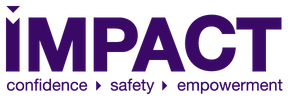In 2017, at the height of the #MeToo movement, it was near impossible to look at the news without seeing a story about sexual abuse in sports. Whether it was an image of Larry Nassar in a prison jumpsuit or brave Olympic gymnast survivors finally being believed and sometimes even celebrated for speaking out, the stories were everywhere. Athletes from other sports started speaking out too, and media coverage of sexual abuse in local, professional, and Olympic sports increased.
But one group was missing: athletes with disabilities.
Despite decades of evidence that people with disabilities experience higher rates of sexual violence than almost any other group, disabled athletes were completely absent from the public conversation. That fall, I called and emailed the Indy Star reporters who first broke the Larry Nassar story. I asked if they’d ever looked into sexual abuse in Paralympic sports, or if they knew anyone who had. Both reporters got back to me quickly, but their answer was no.
By that point, IMPACT had been teaching safety skills to people with disabilities and working with schools and disability service agencies for years, but we hadn’t done anything specific to sports. We realized that this was an example of ableism—there is a particular image of who an “athlete” is in this culture, and it’s not a disabled person.
Ableism in sports – and in media coverage of sports – is persistent. I remember a training I gave to a group of adaptive sports coaches years ago. One coach said something I will never forget: “I just want my athletes on the sports page.” His local newspaper regularly covered the wins and losses of conventional sports. But his athletes were only ever covered as an inspiration or a human-interest story.
Thankfully, RALIANCE, a national sexual assault prevention organization that prioritizes sports, shared our concern. They awarded us a grant, which we used to build an abuse prevention curriculum for adaptive sports. IMPACT’s Adaptive Sports Abuse Prevention (ASAP) curriculum now has 43 certified trainers across the U.S. ASAP gives coaches, leaders, and volunteers of adaptive sports organizations the skills to interrupt the boundary violations that are often precursors to sexual abuse. It also gives them the space to have critical conversations about how to make sure that efforts to protect athletes don’t make sports inaccessible.
Many sports organizations have made important policy changes to prevent abuse. Some have implemented clearer and stricter rules about when coaches can be alone with athletes or types of touch that are and are not allowed. These policies may work for nondisabled athletes, but adaptive sports organizations need to be more creative. It makes perfect sense to have a rule that coaches of traveling teams can’t be in athletes’ hotel rooms. But what about the wheelchair rugby athlete who lives with a spinal cord injury and needs assistance getting into bed? If she can’t get this help, she can’t be part of a traveling team. IMPACT is proud to make space for these conversations and to collaborate with adaptive sports leaders across the country to make prevention efforts truly accessible.
